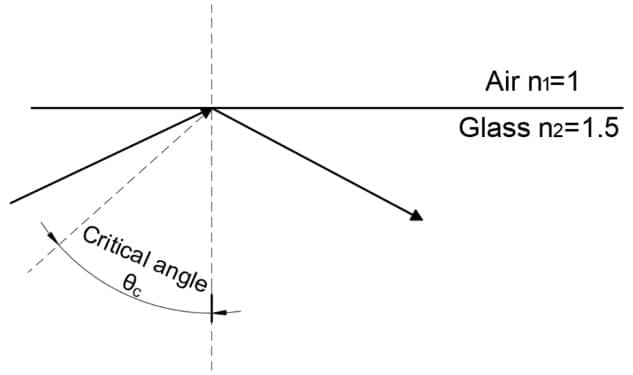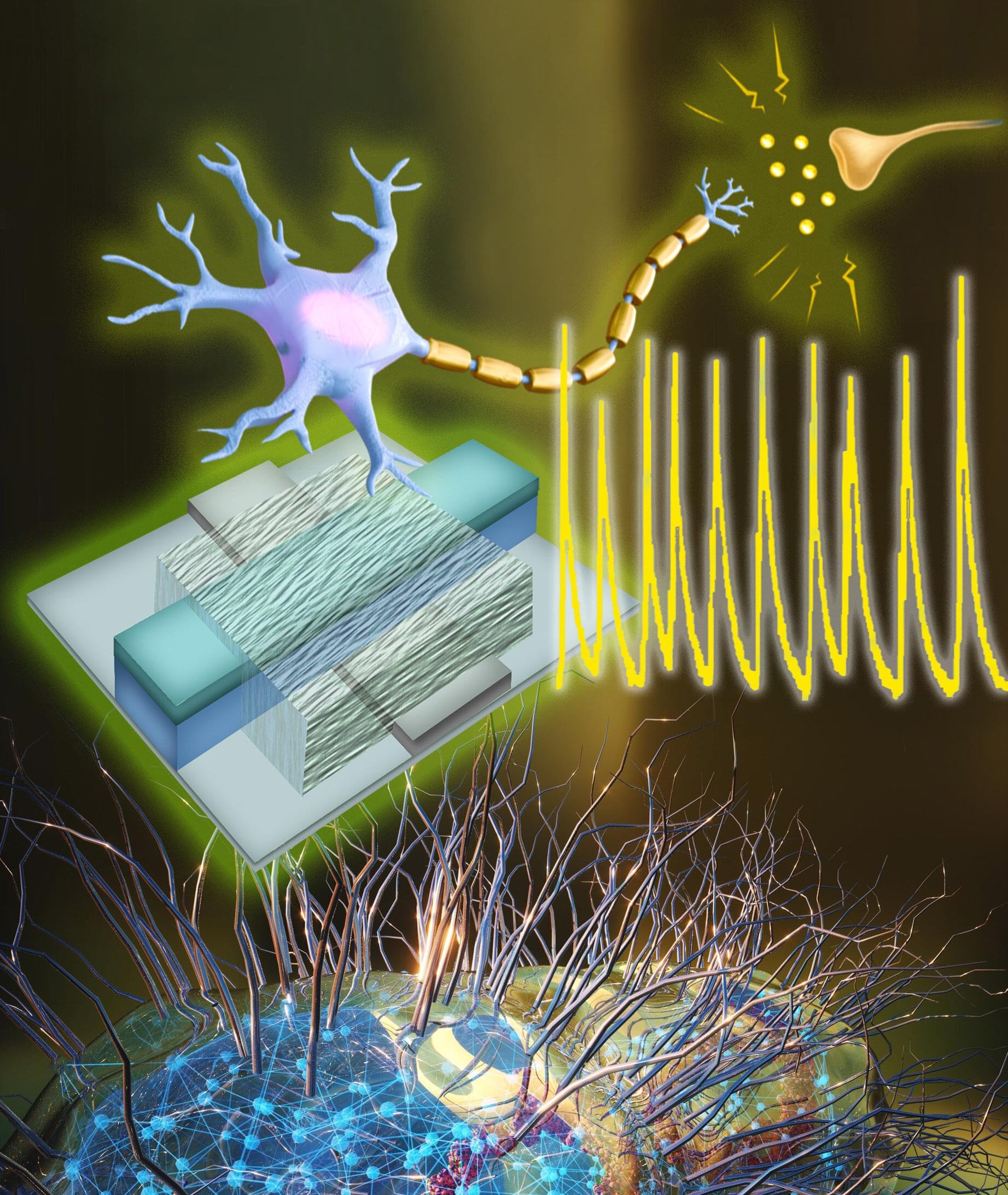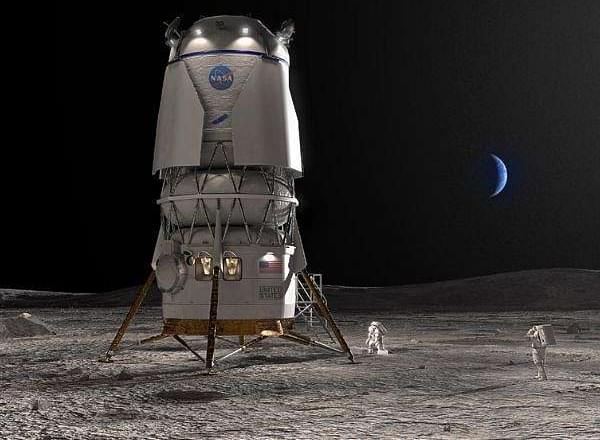More users will be able to use advanced and personalized AI in their daily lives, taking one more step further towards AI democratization
Get the latest international news and world events from around the world.



Creator behind AI actress responds to backlash: ‘She is not a replacement for a human being’
Artificial people may put a lot of actors out of work.
Tilly Norwood looks and sounds real, but she’s not real at all.
Created by Eline Van Der Velden, the CEO of the AI production company Particle6, the “actress” has garnered interest from studios with talent agents eyeing to sign her.
Variety reports, Van Der Velden explained at the Zurich Summit that studio interest has spiked since Tilly’s launch with agency representation expected soon. If signed, she would be one of the first AI-generated actresses to have talent representation.


Gaia solves mystery of tumbling asteroids and finds new way to probe their interiors
Whether an asteroid is spinning neatly on its axis or tumbling chaotically, and how fast it is doing so, has been shown to be dependent on how frequently it has experienced collisions. The findings, presented at the recent EPSC-DPS2025 Joint Meeting in Helsinki, are based on data from the European Space Agency’s Gaia mission and provide a means of determining an asteroid’s physical properties—information that is vital for successfully deflecting asteroids on a collision course with Earth.
“By leveraging Gaia’s unique dataset, advanced modeling and A.I. tools, we’ve revealed the hidden physics shaping asteroid rotation, and opened a new window into the interiors of these ancient worlds,” said Dr. Wen-Han Zhou of the University of Tokyo, who presented the results at EPSC-DPS2025.
During its survey of the entire sky, the Gaia mission produced a huge dataset of asteroid rotations based on their light curves, which describe how the light reflected by an asteroid changes over time as it rotates. When the asteroid data is plotted on a graph of the rotation period versus diameter, something startling stands out—there’s a gap, or dividing line that appears to split two distinct populations.

Engineers create first artificial neurons that could directly communicate with living cells
A team of engineers at the University of Massachusetts Amherst has announced the creation of an artificial neuron with electrical functions that closely mirror those of biological ones. Building on their previous work using protein nanowires synthesized from electricity-generating bacteria, the team’s discovery means that we could see immensely efficient computers built on biological principles which could interface directly with living cells.
“Our brain processes an enormous amount of data,” says Shuai Fu, a graduate student in electrical and computer engineering at UMass Amherst and lead author of the study published in Nature Communications. “But its power usage is very, very low, especially compared to the amount of electricity it takes to run a Large Language Model, like ChatGPT.”
The human body is over 100 times more electrically efficient than a computer’s electrical circuit. The human brain is composed of billions of neurons, specialized cells that send and receive electrical impulses all over the body. While it takes only about 20 watts for your brain to, say, write a story, an LLM might consume well over a megawatt of electricity to do the same task.

NASA seeks student solutions for lunar lander life support technologies
NASA has launched the 2026 Human Lander Challenge, inviting U.S.-based university students to propose fresh concepts for life support and environmental systems vital to long-duration spaceflight. The program, part of the Artemis campaign, focuses on advancing Environmental Control and Life Support System (ECLSS) technologies needed to sustain astronauts on the Moon and future missions to Mars.
The challenge seeks undergraduate and graduate teams to design systems-level solutions across four subtopics: noise control, sensor reduction in health monitoring hardware, potable water dispensing, and fluid transfer between lunar or Martian surface assets. Proposals must improve ECLSS reliability in areas such as air, water, and waste management.
“A robust ECLSS transforms a spacecraft like a lander from just hardware into a livable environment, providing breathable air, clean water, and safe conditions for astronauts as they explore the Moon,” said Kevin Gutierrez, acting office manager for the Human Landing Systems Missions Systems Management Office at NASA Marshall. “Without ECLSS we can’t sustain human presence on the Moon or take the next steps toward Mars. The subtopics in the 2026 Human Lander Challenge reflect opportunities for students to support the future of human spaceflight.”
We Found a Loophole to Survive the End of the Universe
Go to https://ground.news/nutshell to get 40% off unlimited access to Ground News so you can compare coverage and think critically about the news you read.
Sign up to the Birb’s Nest newsletter → https://shop.kgs.link/birb-nest.
Get exclusive freebies, early access, and much more from the kurzgesagt universe.
Sources & further reading:
https://sites.google.com/view/sources-surviveheatdeath/
Can we survive the heat death of the universe? One day, the last star will die, galaxies will dissolve, and black holes will evaporate. The universe becomes a cold, empty void where nothing happens.
Forever. But there might be a loophole that lets life keep going.
OUR CHANNELS
▀▀▀▀▀▀▀▀▀▀▀▀▀▀▀▀▀▀▀▀▀▀▀▀▀▀
German: https://kgs.link/youtubeDE
Spanish: https://kgs.link/youtubeES
French: https://kgs.link/youtubeFR
Portuguese: https://kgs.link/youtubePT
Arabic: https://kgs.link/youtubeAR
Hindi: https://kgs.link/youtubeHI
Japanese: https://kgs.link/youtubeJA
Korean: https://kgs.link/youtubeKO
HOW CAN YOU SUPPORT US?

Your pancreas may be making its own version of Ozempic
Alpha cells in the pancreas can produce GLP1, not just glucagon, offering a surprising backup system for blood sugar control.
Duke University scientists have discovered that pancreatic alpha cells, long believed to only produce glucagon, actually generate powerful amounts of GLP-1 — the same hormone mimicked by popular diabetes drugs like semaglutide (Ozempic and Wegovy). Even more surprisingly, when glucagon production is blocked, alpha cells “switch gears” and boost GLP-1 output, enhancing insulin release and blood sugar control.
A new study from Duke University School of Medicine is challenging long-standing views on blood sugar regulation — and pointing to a surprising new ally in the fight against type 2 diabetes.